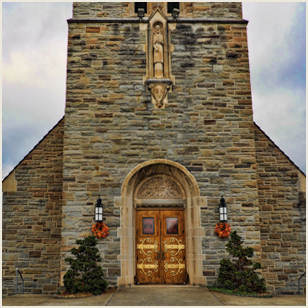Bernard of Clairvaux (1090-1153), Page: Quotes, Quote Author, Spiritual (life)
Once you have had the experience of God’s benevolence, you need no longer feel abashed in aspiring to a holier intimacy. Growth in grace brings expansion of confidence. You will love with greater ardor, and knock on the door with greater assurance, in order to gain what you perceive to be still wanting to you. ‘The one who knocks will always have the door opened to him’. It is my belief that to a person so disposed, God will not refuse that most intimate kiss of all, a mystery of supreme generosity and ineffable sweetness.
–Saint Bernard of Clairvaux (1090-1153)
Page: Quotes, Quote Topic, Spiritual (life)
Therefore let us leave untouched the senseless speculations of the masses and the false doctrines, and turn to the teaching delivered to us in the beginning, let us be temperate and ready for our prayers, persevere in fasting, and fervently implore the All-seeing God not to expose us to temptations, since the Lord has said: ‘The spirit is willing, but the flesh is weak.’
— Saint Polycarp (Second Century)
Page: Quotes, Quote Topic, Spiritual (life)
In the beginning there is struggle and a lot of work for those who come near to God. But after that there is indescribable joy. It is just like building a fire: at first it is smoky and your eyes water, but later you get the desired result. Thus we ought to light the divine fire in ourselves with tears and effort.
–Saint Synkletike (d.350)
Page: Quotes
A simple rule, to be followed whether one is in the light or not, gives backbone to one’s spiritual life, as nothing else can.
–Evelyn Underhill (1875-1941)
Page: Quotes, Quote Topic, Spiritual (life)
Anyone can lead a “prayer-life”–that is, the sort of reasonable devotional life to which each is called by God. This only involves making a suitable rule and making up your mind to keep it however boring this may be.
–Evelyn Underhill (1875-1941)
Page: Quotes, Quote Topic, Spiritual (life)
But so many Christians are like deaf people at a concert. They study the programme carefully, believe every statement made in it, speak respectfully of the quality of the music, but only really hear a phrase now and again. So they have no notion at all of the mighty symphony which fills the universe, to which our lives are destined to make their tiny contribution, and which is the self-expression of the Eternal God.
–Evelyn Underhill (1875-1941)

